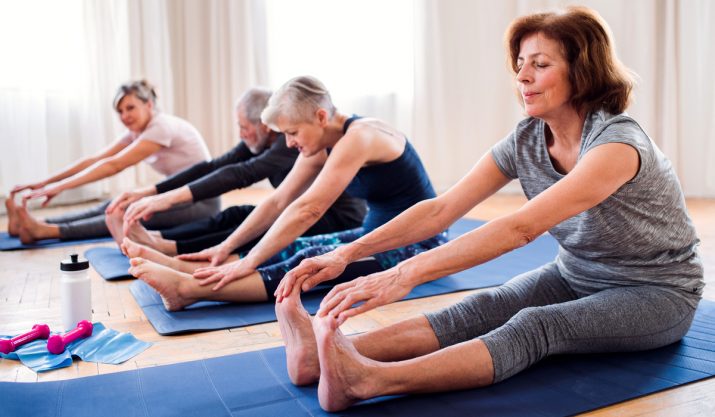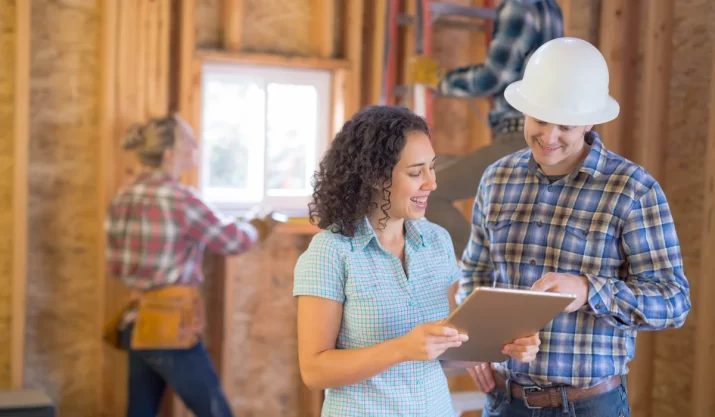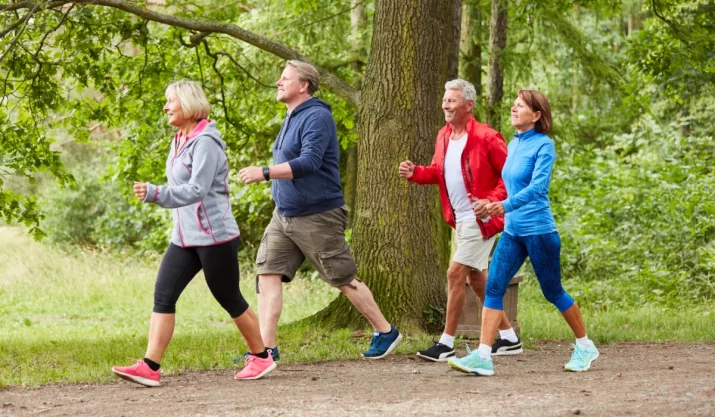7 Ideas to Help Seniors Stay Social

Table of Contents
As we get older, it becomes increasingly important to stay social. Retirement communities and senior living facilities are great, but they can be isolating for some.
With that in mind, here are seven ideas to help seniors stay social and active.
Key Takeaways
- Whether it’s interacting with other family members, a close friend, or even fellow residents at a senior living community, social support is vital for people as they age.
- Some of the best ways to get more social contact are to take classes, go to live music events, adopt a dog, and more.
- The importance of socialization cannot be overstated, as social engagement has a variety of cognitive, physical, and emotional benefits for seniors.
Why Should Seniors Socialize?
As people age, it’s natural for them to become more withdrawn. They may have less energy and interest in social activities, and they may also be dealing with health issues that make it difficult to get out and about. However, there are many good reasons for seniors to stay social.
How Loneliness Can Impact Seniors
Seniors are more susceptible to loneliness. This is due to a number of factors, including retirement, the loss of loved ones, and declining health. While some degree of loneliness is normal, chronic loneliness can cause serious health problems, including depression, heart disease, cognitive decline, and a decline in overall quality of life.
Cognitive Decline
Seniors who report feeling lonely are more likely to experience cognitive decline, including memory problems and difficulties with executive function. In addition, loneliness has been linked to an increased risk of Alzheimer’s disease.
Researchers believe that the social isolation associated with loneliness may lead to changes in the brain that promote the development of Alzheimer’s. These findings highlight the importance of social connection for seniors’ cognitive health.
Increased Stress Levels
Seniors who feel lonely often suffer from increased levels of stress. This can lead to a host of physical health problems, such as high blood pressure, heart disease, and stroke.
Depression and Other Mental Health Issues
Depression is one of the most common problems associated with loneliness. When we’re lonely, we often don’t have anyone to talk to about our problems. We might start to withdraw from activities we used to enjoy. We might stop taking care of ourselves. All of these things can lead to a downward spiral of depression.
High Blood Pressure, Heart Disease, and Other Physical Health Issues
Loneliness can lead to a number of health problems, including high blood pressure, heart disease, and depression. When people feel isolated and alone, they are more likely to experience anxiety and stress. This, in turn, can lead to increased blood pressure and heart rate. In addition, loneliness has been linked to a weakened immune system, which can make seniors more susceptible to illness.
What Are Some of the Health Benefits of Socialization?
Socialization is critical for human beings of all ages. It helps us to develop a sense of self, learn how to communicate and interact with others, and form relationships. Without socialization, we would be unable to function in society. However, socialization is not just beneficial for children; it also has a number of benefits for older adults.
Decreased Likelihood of Developing Dementia
While the exact mechanism by which socialization protects against dementia is not yet known, it is thought that social interaction helps to keep the brain active and engaged, which may help to delay or prevent the onset of dementia.
In addition, social interaction has been found to have other health benefits, such as reducing stress levels and improving cardiovascular health. As a result, it is clear that socialization can have a positive impact on both physical and mental health.
A More Positive Outlook on Life
One of the most significant benefits of socialization is that it can help to improve your outlook on life. When you interact with others, you have the opportunity to explore new ideas and perspectives. This can broaden your thinking and help you to see the world in a new light. In addition, socialization can also provide a sense of belonging and support. When you know that there are people who care about you, it can be easier to cope with life’s challenges. As a result, socialization can lead to a more positive outlook on life.
Improved Brain Function
Socializing has been linked with better brain function in a number of ways. For one, socializing can help reduce stress levels, which can in turn lead to better cognitive performance and memory. In addition, socializing can help to stimulate the mind and promote critical thinking. Furthermore, socializing can help keep the brain active and engaged, which can delay the onset of dementia and other age-related cognitive decline.
More Likely to Exercise Regularly
Seniors who socialize regularly are more likely to exercise than those who do not. The study found that both men and women were more likely to stay active if they had a strong social network. In addition, those who participated in regular social activities were also more likely to have healthier body weights and lower levels of inflammation.
Greater Self-Esteem
When we feel close to others and have strong relationships, we’re more likely to have higher self-esteem. Good self-esteem is an important part of overall mental health. It allows us to feel confident and secure in ourselves and our ability to meet life’s challenges. We’re also more likely to take care of ourselves when we have high self-esteem.
That means we’re more likely to eat right, exercise, and get regular medical checkups. On the other hand, when we don’t feel good about ourselves, we’re more likely to engage in unhealthy behaviors, so fostering healthy social relationships is an important part of maintaining our mental and emotional health.
7 Ideas to Help Seniors Stay Social
1. Community Programs
Community programs can play an important role in helping seniors stay social.
Day programs provide seniors with the chance to interact with other people on a regular basis. Community center events give them the opportunity to meet new people and make new friends.
In addition, these programs can help seniors stay active and engaged in their communities.
2. Exercise Classes
Exercise classes can help seniors stay social by providing a regular activity and a chance to meet new people. In addition, exercise classes can help improve balance and flexibility, which can reduce the risk of falls.
And finally, exercise classes can help to boost cognitive function by providing mental stimulation. Whether it’s a weekly yoga class or a daily walk around the neighborhood, exercise classes offer a great way for seniors to stay social and active.
3. Join a Book Club
Book clubs offer a great opportunity to meet new people and discuss shared interests. In addition, they provide a chance to get out of the house and explore new ideas.
4. Live Music
One way to help seniors stay social is to encourage them to attend live music events. Live music provides an opportunity for seniors to get out of the house and enjoy some great entertainment. But more importantly, it gives them a chance to interact with other people.
Seniors can chat with other attendees before the show starts, or they can strike up a conversation with the person seated next to them. Regardless of how introverted someone may be, live music provides an easy way for seniors to meet new people and stay social.
5. Lifelong Learning
Lifelong learning can help seniors stay social and connected to the world around them. By taking classes and participating in activities, seniors can interact with people of all ages and backgrounds. They can learn new things, from computer skills to sports, and explore their interests. In addition, lifelong learning can help seniors stay active and engaged in their communities.
6. Volunteer or Charity Work
Volunteer work is a great way for seniors to stay social while also giving back to their community. Charity work can take many different forms, from helping to raise money for a cause to volunteering at a local soup kitchen.
Regardless of how it’s done, charity work provides seniors with an opportunity to meet new people, learn new skills, and feel good about themselves. In addition, charity work can help to combat feelings of isolation and loneliness, which are common among seniors.
7. Get a Dog
One way to help seniors stay social is to encourage them to get a dog. Dogs need to be taken on walks, which provides an opportunity for seniors to get out of the house and interact with their neighbors.
Dogs also need to be fed, groomed, and played with, providing seniors with a sense of purpose and responsibility. In addition, dogs are known for their unconditional love and companionship, both of which can be invaluable to seniors.
Not sure what kind of dog to get? There are some breeds that are better than others for seniors, but it’s ultimately a matter of personal preference.
The Bottom Line
No one should have to suffer from loneliness and isolation. If you know of a senior citizen who is feeling lonely, please reach out to them and offer your support. There are many ways that seniors can stay social, regardless of their age or physical limitations.
Questions Others Are Asking
What are signs of loneliness?
Seniors who are lonely may withdraw from activities that they once enjoyed. They may stop going to the gym, attending church, or participating in hobbies; or they may isolate themselves at home, spending most of their time in their bedroom or in front of the television. They may sleep more than usual or have trouble sleeping.
Why are seniors at increased risk for loneliness?
As people age, they often become less mobile and may no longer drive. This can make it difficult to get out and socialize. In addition, many seniors experience the loss of loved ones, which can lead to feelings of loneliness and isolation. Furthermore, seniors may retire from their jobs or have less interaction with others on a daily basis. All of these factors can contribute to increased levels of loneliness in seniors.
What can I do to motivate seniors to socialize?
Provide opportunities for the seniors in your life to interact with other people. This could involve organizing group outings or setting up social events at senior centers. You could also encourage seniors to join clubs or volunteer organizations, which can help them to meet new people and stay active.








